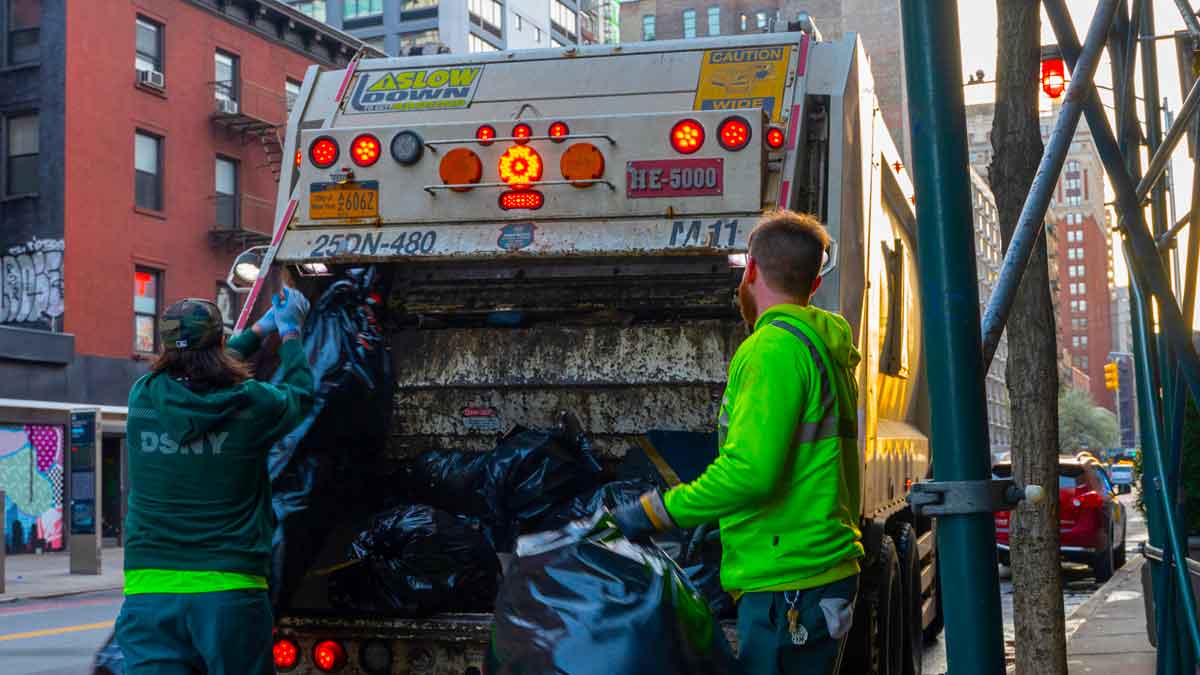Tech
MTU Class of 2024 Celebrates Spring Commencement

Three Huskies who achieved success through unwavering persistence and mathematical
prowess will address members of the Class of 2024 at Michigan Technological University’s
Spring Commencement.
Entrepreneur and philanthropist Chang K. Park, who graduated from Michigan Tech in
1973 with dual degrees in electrical engineering and engineering administration, is
the featured commencement speaker at ceremonies on Friday and Saturday, April 26 and 27. Zazil Santizo-Huerta, who is earning her Ph.D. in Mathematical Sciences, will address her fellow graduate students. Vincent Barfield, completing a dual major
for his bachelor’s degree in mathematics and computer science, will deliver the undergraduate address.
More than 1,000 Huskies in the Class of 2024 will celebrate a hard-earned and long-awaited
milestone this spring. Graduate student commencement is at 3 p.m. Friday. Undergraduate
commencement is at 10:30 a.m. Saturday. Both take place in the John J. MacInnes Student
Ice Arena.
Commencement Logistics
- Free parking is on a first-come, first-served basis in Lot 22 adjacent to the SDC
and Lot 24 near the football field. - See the campus map for accessible parking locations and other locales related to the commencement ceremonies.
- The ceremonies typically last about two hours.
- Can’t be here? Catch the Spring Commencement livestream.
- Share your Husky Pride on social media using #mtugrad
More Reasons to Celebrate
Commencement weekend is especially festive this year, with ceremonies Friday to celebrate
the official opening of the H-STEM Complex. An additional ribbon-cutting ceremony takes place at 1 p.m. Friday at the new Alumni
Gateway Arch to celebrate the latest addition to Michigan Tech’s Alumni Way. Located at the west entrance to Tech, the arch is a focal point welcoming Huskies
and visitors to campus. Everyone is invited to attend and no RSVP is required.
Commencement Speaker Shares Resources and Wisdom
Park, who will speak at both ceremonies, has more than mathematics in common with
his 2024 counterparts. Like Santizo-Huerta, he came to the United States to pursue
higher education. Like Barfield, he earned dual degrees. But unlike the student speakers,
his emphasis on math was by necessity, not choice.
Park’s parents were farmers in North Korea who escaped to South Korea with their family.
As refugees, they experienced poverty and embraced education. “My parents never received
a higher education. However, they always saw the value,” said Park. “They made an
enormous sacrifice to educate us. The value of education was instilled early in all
of us. As a result, all six of their children became professionals.”
When he was a teenager, Park’s parents sent him to the United States with $200, with
half of the money sewn into his clothing to avoid Korea’s currency export restrictions
at that time. He attended high school in New York City. “I did not speak English.
All I could recognize was numbers,” said Park. Math, his least favorite subject in
his home country, became his primary avenue to understanding and achievement.
Park would go on to graduate from the Brooklyn Academy, receiving the New York State
Regent Award in math.
“My counselor at school suggested Michigan Tech when I told him that I wanted to go
to school in a quiet place so that I could focus my mind on study without much distraction,”
Park said. Houghton is indeed a quiet place. But not exactly where Park imagined.
“In those days, we did not have Google Maps. I thought Houghton was near Detroit,”
he said, joking, “When I arrived, I started to wonder if my counselor had something
against me!”
Park remembers the downtown temperature sign at Houghton National Bank reading minus
12. He remembers feeling homesick and “mostly studying, to survive the rigors of academia.”
“Michigan Tech and Houghton were lonely places to be in for a foreign student at that
time, especially in winter,” he said. “I would listen to country music from a powerful
radio station in Des Moines, Iowa, that was directed to truck drivers on interstate
highways. It barely reached Houghton on cold winter nights and it tended to fade in
and out. I was glad that I could hear the sound from a faraway, different region.”
Park has warm memories of returning to Michigan Tech as Midyear Commencement Speaker in 2011, when he had a welcome opportunity to thank the professor who helped him
get back on track at a crucial point in his studies. Park had flunked Doc Berry’s
legendary Introduction to Chemistry class.
“Dropping out of school was not an option. I felt ‘this is another challenge I need
to overcome,'” Park said.
“When I took that class the second time, Gladys Dawson — she was really good. I did
not earn an A for taking the course a second time. I don’t think I learned much the
first time. The second time, it was the teacher who made it so easy to learn.”

Dawson attended Chang’s 2011 commencement speech and the University also arranged
for her to join leaders who hosted him at breakfast.
By the time he addressed the MTU Class of 2011, Park, a resident of New York, had
collected numerous achievements. He had been part of a Philadephia-based engineering
team that designed large and innovative rapid transit systems, earned an MBA from
the Wharton School of the University of Pennsylvania, worked in international finance
for J.P. Morgan, and founded his company, Universal Remote Control Inc., where he
is still president and CEO.
The global company, known as URC, develops and distributes remote controls and home
automation products. Park created it more than 30 years ago in the same spirit of
philanthropy that led him to serve on boards including Bread for the World, Common
Cause, Union Theological Seminary and WNET, a parent company of PBS in New York and
surrounding states.

humanitarian organization CARE, and also received Bread for the World’s Art Simon
Award. (Image courtesy Chang K. Park)
“I decided to leave the finance industry and started the company to create jobs for
impoverished people,” said Park. “They needed jobs. But the first five years were
quite a struggle. I learned a great deal from this valuable experience.”
The company finally found its groove by capitalizing on the potential of remote controls,
then in their infancy. “They were very simple in the 1980s. We made them much better,”
said Park.
“Struggle is part of the growing process. I don’t look at it negatively.”
Park was recognized with the Lifetime Achievement Award from CEDIA, a trade association
representing 3,700 member companies in the custom electronics design and installation
industry. An inductee of the Michigan Tech Academy of Electrical Engineers, he has received an honorary Ph.D. and the University’s Distinguished Alumni Award. He is chairman of the Chang K. Park Foundation, an organization that supports human
rights, elimination of poverty and hunger, and implementation of political reform
and economic justice. These are the principles he was raised with. “Helping people
to realize their full potential and reduce suffering in less developed countries is
important,” he said.
In 2011, Park told graduates, “Don’t give up. A setback followed by perseverance is
the road to triumph.” He still believes that. “I see a number of people who are far
more talented than me, but are not able to achieve their full potential,” he said.
“I believe this is because they lack the necessary grit to succeed. A person should
also have sufficient wisdom to know that they are not pursuing a dead end.”
When asked what he looks forward to each day and what his hopes are for the future,
Park said he sees life as a series of moments that evolve, like the four seasons,
through time. “We need to assess where we are in those seasons and moments. I try
to make the most of each, with peace and tranquility in my mind, and to continue to
be a contributing member of our society.”
His advice for the student speakers is simple and kind: “I advise them to be authentic
and genuine — as I am sure they are — and the audience will relate to you and respond
to you.”
Graduate Speaker Harnesses the Power of Math
Zazil Santizo-Huerta knows about perseverance and determination. She hopes to instill
that spirit in others on Friday, when she’ll share her message with an estimated 300
graduate students celebrating the completion of their advanced degrees. The graduate
class is composed of 42 Ph.D. students and 258 Huskies earning their master’s degrees.

continuing her work to make math more accessible and enjoyable for her students.
Santizo-Huerta has already faced the performance of her life thus far. On April 5,
she presented her Ph.D. defense: “On Graph Decompositions and Designs: Exploring the
Hamilton-Waterloo Problem With a Factor of 6-Cycles and Projective Planes of Order
16.”
“My defense went smoothly, and I’m thrilled to say I’ve officially earned my Ph.D.,”
she said. “The most challenging aspect was definitely polishing and preparing the
final version of my papers for submission. It was a meticulous process that took several
months, but the satisfaction of hitting that final submit button just before finishing
my dissertation made it all worthwhile. On a lighter note, I genuinely enjoyed creating
the graphs using LaTeX. There’s something quite satisfying about visualizing complex
mathematical concepts through clear and well-drawn diagrams!”
Santizo-Huerta, who hails from Tapachula, Chiapas, Mexico, has always enjoyed math.
“I’m lucky. My dad studied math as well. I learned math by playing.” Her father made
it a game, consistently applying mathematical concepts to real-life situations when
she and her older sister, now a physicist, were youngsters.
Santizo-Huerta chose her defense topic, a mathematical problem that involves conference
seating arrangements in which everyone sits next to everyone else exactly once during
the entire event, in the spirit she learned as a child.
“I was intrigued by this problem because of the playful approach, and how this can
make learning combinatorics more engaging and accessible,” Santizo-Huerta said.
Active in teaching and mentoring at Michigan Tech, Santizo-Huerta was previously an
instructor at the National Autonomous University of Mexico, her undergraduate alma
mater. It was there that she heard about Tech from Octavio Paez, who earned his Ph.D.
from Michigan Tech.
“I chose to come to Michigan Tech because I was interested in working with Dr. Vladimir Tonchev. Although I did not end up working with Dr. Tonchev, I learned a lot from him, my
advisor Melissa Keranen, and other professors in the discrete math concentration area,” said Santizo-Huerta.
Following graduation, Santizo-Huerta is moving Los Angeles to be with her husband,
Alan Ramirez Ortega, an architect who lived with her in Houghton for the first four
years of her studies before moving to LA for a job opportunity. The couple was married
in 2015, one year before Santizo-Huerta immersed herself in advanced studies through
a STEM Regional Fulbright scholarship.
“Now it’s my turn,” she said. “It’s been tough for both of us. We try to call every
day. Not only once, but two or three times, just checking on how we’re doing. He has
been so supportive. The day I said, ‘I’m moving to the U.S. because I’m going to pursue
a Ph.D.,’ he said, ‘I’m going with you.’ He never complained about coming with me.”
The Fulbright scholarship is an opportunity for Mexican students with an intermediate
level of English to pursue a postgraduate degree in the United States in the areas
of science, technology, engineering and mathematics (STEM). One of the components
of the program is an intensive English course in the U.S. prior to beginning advanced
coursework.
Santizo-Huerta spent several months at the University of Maryland immersed in English
reading, writing and speaking while successfully preparing for the application process
to be admitted to Tech.
“I love challenges. I’m so passionate about sharing knowledge. I knew I could improve
my English,” she said. With the help of her teaching mentors in Tech’s math department
and feedback from student evaluations, Santizo-Huerta has continued to make steady
progress. She is mindful of being a naturally fast talker and reminds students to
ask her to slow down if they are having trouble keeping up. “I kept practicing and
practicing, and this semester, I got the department’s outstanding Outstanding Graduate Student Teaching Award! That means that I improved in both my teaching and my speaking,” she said.
At Tech, Santizo-Huerta has reveled in the seasons. But when she arrived in fall 2016,
she was astounded by how quickly autumn went by. “I know it was longer, but to me
it felt like a week! The first blizzard was after Thanksgiving — oh, gosh, the snow
was over my knees. I have to be honest, I couldn’t resist the temptation to jump in,”
said Santizo-Huerta, who grew up in a tropical environment. “The only thing I can
complain about is shoveling. I love the outfits, the jackets, everything — just not
the long sessions of shoveling.”
Both Santizo-Huerta and Ortega loved Houghton. But, she’s looking forward to spending
more time with him in California.
“The worst part of being a graduate student is for the families. Because we are so
busy! It’s an important thing to learn how to manage your time between work, home
and family. Because they deserve it. They are here with you, with all their love and
support,” Santizo-Huerta said. Ortega attended her defense in person, along with her
mother-in-law. They, and her parents, will be at Friday’s commencement ceremony.
In addition to time with her husband, Santizo-Huerta looks forward to new students
as she begins teaching at a university in Los Angeles.
“Many students develop a negative perception of math early on, viewing it as solely
about memorizing formulas and solving tedious problems. I can see that they really
struggle. My goal is to shift this perspective and help students discover the inherent
joy of math,” she said. “This involves making them see math as a tool for exploration,
discovery and problem-solving in the real world.”
“When students connect math to their interests and grasp the power it holds, they’ll
be more likely to approach it with curiosity and find the process of learning and
doing math genuinely enjoyable.”
“I can’t wait to keep teaching! I can see that when it comes to math, students really
struggle. It’s tough for them, but that is because we learn it’s difficult in previous
stages of school,” she said. “When you see it applied in real life, you realize how
powerful it is. The idea is how you share that in an easy way, so students won’t be
afraid of it, but happy to learn new concepts.”
About five years ago, Santizo-Huerta began working on voice acting as a hobby. She
practiced the craft in the small amount of spare time she had between her studies
and teaching.
She’s also learning photography and enjoys board games, walks by the Keweenaw Waterway
and summer barbecues with friends as a way to relax after full days of studying and
teaching. But, her Sundays are reserved. “Sundays are my sanctuary for indulging in
the vibrant and imaginative realm of anime, where each storyline unfolds like a cherished
treasure waiting to be discovered,” she said.
As she leaves Houghton, Santizo-Huerta said winter has become her favorite season.
She also sees winter as a prime example of what sets Michigan Tech apart.
“One of the most surprising aspects of my time at Tech was the incredible dedication
and resilience displayed by both students and faculty, especially during the winter
months when temperatures plummeted to unprecedented lows,” Santizo-Huerta said. “Despite
the bitter cold and icy conditions, there was an unwavering commitment to academic
excellence that truly impressed me.”
“I can’t imagine doing my Ph.D. in any other place. It’s quiet. It’s peaceful. It’s
beautiful. You can create good friendships and connect with people. We have resilience.
We work with what we have. Even though we face adversity, we try to overcome that,
and we succeed. I think that is the Husky spirit.”
Undergraduate Speaker Taps into the Value of Data
Vincent Barfield wasn’t certain he’d be walking in the commencement ceremony this
spring, let alone serving as undergraduate student speaker. Fall 2024 graduation had
been an option. The timing came together shortly before the deadline to submit speeches.
On Saturday, Barfield will address approximately 759 of his fellow undergraduates
before they cross the stage to commemorate the finale of their bachelor’s degree coursework.
“Once I realized I was going to be walking, I knew that the opportunity to be the
student speaker would be an incredible honor and I would regret not submitting a speech,”
Barfield said. “I want to talk about how amazing it is to have the opportunity to
study at Michigan Tech and emphasize how well-positioned we are to make a difference
in this world.”

to be a programmer since he was a child, is pursuing a career in software development
and machine learning.
A prior fortuitous spur-of-the-moment decision brought Barfield to Tech. “I was working
in the shipping department of an RV factory for two years after high school,” he said.
“One day after returning home from work, I decided it was time to enroll in a college
in order to start my long-term career, like I had always intended. I spent that night
applying to a number of different colleges. All that I knew about Michigan Tech at
that time was that it had a well-ranked computer science department. And now, it’s
been my home for four wonderful years. Crazy to think about, really. It changed my
life.”
Originally from Atlanta, Georgia, Barfield’s hometown for the last decade has been
Three Rivers, Michigan. The 2022-23 recipient of an undergraduate student Mathematics
Achievement Award, Barfield is interested in machine learning, high-speed computing
and data analysis. He’s wanted to be a programmer since middle school. “Enrolling
as a computer science student was an easy decision,” he said.
“Programmers are sort of like wizards and programming is sort of like casting a spell.
Who doesn’t want to be a wizard? That was my thought process as a child, and, for
the most part, I still feel the same. There are a lot of problems in the world. However,
if you know how to program, a lot of those problems can be solved with a good idea,
an internet connection and a computer.”
“Unlike my first major, mathematics was something that I never expected to study in
any depth. I enjoyed mathematics quite a lot throughout early K-12, but my enjoyment
tapered off somewhat once I entered middle school,” Barfield said. “However, once
I was at Tech, Calculus III with Alexander Labovsky sparked a curiosity in me. Upper-level math has so many cool symbols and hard-to-understand
concepts that I wanted to learn more about. So, in the spring of my sophomore year,
I decided to take a second major in applied mathematics.”
Barfield worked on two Michigan Tech Enterprise teams, Blue Marble Security (BMS) and Humane Interface Design Enterprise (HIDE).
BMS was his first experience in the program, which pairs students with clients to
work on industry projects.
“With standard coursework, you don’t get a ton of opportunities to work on real problems,
and that was exactly what BMS was for me,” he said. “I worked with a small team to
finish an autonomous robot named Charlie. The team was chaotic and unorganized in
the beginning because we were all new to the project. However, over the coming months,
we became familiar with the technology and comfortable with the environment. That
feeling of growing with a team and being united to achieve a common goal is still
to this day one of my greatest motivators.”
In the fall of his second year, Barfield joined BMS’s Robotic Bookshelf project. “Our
goal was to design and implement the prototype for a bookshelf that could replace
the shelves on the garden level of the campus library,” he said. “Unlike the previous
project, many of the students working on this project had been in BMS for a while.
The older team members taught us a lot about robotics, programming and just general
stuff about being a student. Their insight helped me to traverse the struggles of
being a college student and I am incredibly grateful.”
Barfield decided to explore more Enterprise opportunities at Michigan Tech by joining
HIDE in spring semester 2022. This time, his team worked for the U.S. Army Ground
Vehicle Systems Center. “I was assigned to the GVSC Simulation team that was developing
a virtual reality simulation game to test the effectiveness of different heads-up
displays (HUDs) for the Ground Vehicle Systems Center. It was very fun to learn how
to implement user interface elements using Unreal Engine (a game engine),” he said.
Barfield hasn’t decided on a specific company yet, but knows what he wants in a career.
“I’m looking for a software development position where I can solve difficult problems,”
he said. “Machine learning seems to be one area where I can do that. In the last decade,
talented software developers and data scientists have solved very difficult problems
by building data-based models. I would like to begin my career by helping build these
models.”
A former Computer Science Learning Center coach, Barfield is also a guitar player
who tends to cycle through different musical phases, often playing jazz, rock or metal.
“Lately, I’ve been into folk music,” he said. “I’m trying to learn a Romanian folk
song right now.”
Not surprising for a Michigan Tech student, he enjoys exploring interesting research
and fantasy tabletop gaming in his spare time. “Earlier this semester, I was talking
with Ronghua Xu about his research involving blockchain integrated into IoT (Internet of Things)
networks. This sparked my interest in nonfinance-oriented blockchain applications.
There are so many technologies where trust-free record-keeping could make a large
impact,” he said. “And I’ve been playing a lot of Dungeons & Dragons this semester.
It’s a fun, creative hobby where nerds like myself can roleplay a character of your
creation within the confines of game mechanics.”
Barfield is also destressing with the help of a new addition at his fraternity, Sigma
Rho Alpha Chapter. “We just got a pingpong table, and that has been intense. It’s
a great way to competitively relax after a long day of classes and homework,” he said.
Barfield’s face lights up when he talks about what he’s most thankful for during his
time at Tech. “I’m grateful to have discovered and become a brother at Sigma Rho,”
said Barfield, who currently serves as treasurer, IT chair and a management committee
member. “Having companions to more pleasantly pass the days makes the entire college
experience that much more enjoyable. Though Sigma Rho, I have made relationships that
will last a lifetime and, for that, I could not be more grateful.”
Michigan Technological University is a public research university founded in 1885 in Houghton, Michigan, and is home to more than 7,000 students from 55 countries around the world. Consistently ranked among the best universities in the country for return on investment, Michigan’s flagship technological university offers more than 120 undergraduate and graduate degree programs in science and technology, engineering, computing, forestry, business and economics, health professions, humanities, mathematics, social sciences, and the arts. The rural campus is situated just miles from Lake Superior in Michigan’s Upper Peninsula, offering year-round opportunities for outdoor adventure.










